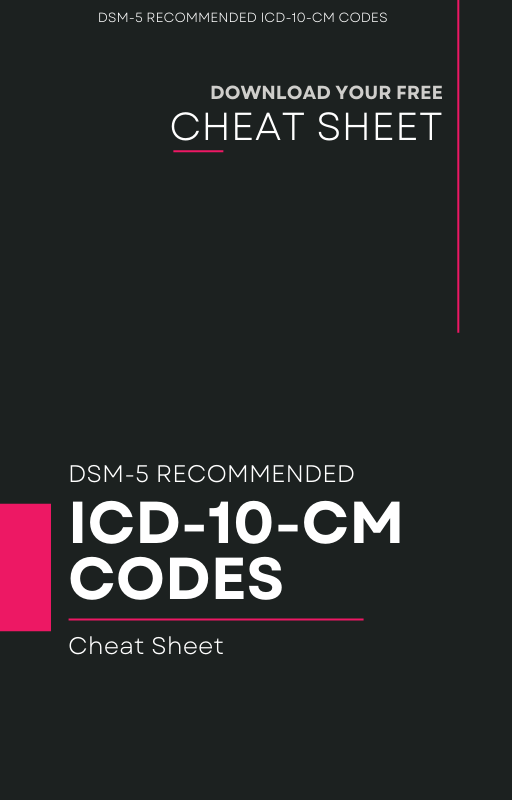ICD-10 Code for Altered Mental Status
In this blog post, Valant discusses the ICD-10 code for Altered Mental Status. Altered mental status, unspecified (R41.82) is a billable ICD-10 diagnostic code under HIPAA regulations from October 1, 2020, to September 30, 2021. This code is acceptable to insurers when used to describe a marked change in mental health status not attributable to other factors.
Other terms mental health practitioners use in addition to or in place of altered mental status include:
- Changes in mental status, NOS (not otherwise specified)
- Character trait finding of the level of suggestibility
- Disturbance of consciousness
- Disturbance in suggestibility
- Drugged state
- Grayout
See the New 2025 ICD-10-CM Updated Codes Lookup for Mental/Behavioral Disorders (F01–F99)
See previous ICD 10 Updates
When To Use ICD-10 Code for Altered Mental Status, Unspecified – R41.82
Clinicians should only use the R41.82 diagnostic code when they do not have enough information available to them about a client’s specific condition. While insurers prefer more descriptive ICD-10 codes, mental health practitioners should not list something specific if the patient’s medical record cannot support the diagnosis.
Descriptions Not to Use with Altered Mental Status, Unspecified
When selecting the R1.82 diagnostic code, providers should avoid using these descriptions:
- Altered level of consciousness (R40)
- Altered mental state due to known condition since provider should code the condition in that case
- Delirium NOS (R41.0)
ICD-10 codes ranging from R40 to R46 describe signs and symptoms related to behavior, cognition, emotional state, and perception. R41 codes are specific to awareness and cognitive function. Altered mental status has many possible causes, including the following:
- Adrenal gland or thyroid disease
- Brain disease or tumor
- Burns
- Carbon dioxide poisoning
- Dehydration
- Diabetic ketoacidosis
- Drug or alcohol withdrawal
- Head trauma such as a concussion
- Heart attack
- High altitude cerebral edema
- High or low blood sugar levels
- Hypothermia
- Low oxygen levels
- Previous psychiatric issues
- Renal failure or urinary tract disease
- Seizures
Continue reading Altered Mental Status ICD 10 R41.82…
Providers can change the code once they have more information about the cause of the patient’s altered mental status available to them.
Want to learn more about ICD-10 codes? Check out our information on other specific codes, such as ICD-10 Codes for Depression – F32.0–F33.3, ICD-10 Code for Anxiety, Unspecified – F41.9, ICD-10 Code for Generalized Anxiety Disorder – F41.1, and ICD-10 Code for Suicidal Ideation – R45.851.
Valant Makes ICD-10 Coding Easy
Valant provides electronic health record (EHR) solutions for mental health practitioners. With Valant, psychologists can easily find and submit ICD-10 diagnostic codes, enabling them to spend less time sifting through codes and more time treating patients. Valant invites you to learn more about our services by requesting a demo of our EHR for mental health.
If you are already a Valant user and want to enter a diagnostic code into your system, navigate to the Diagnoses tab on the patient’s chart and create a new diagnosis. You should then enter the diagnosis code in the description field and save. Contact our support team with any further questions.









